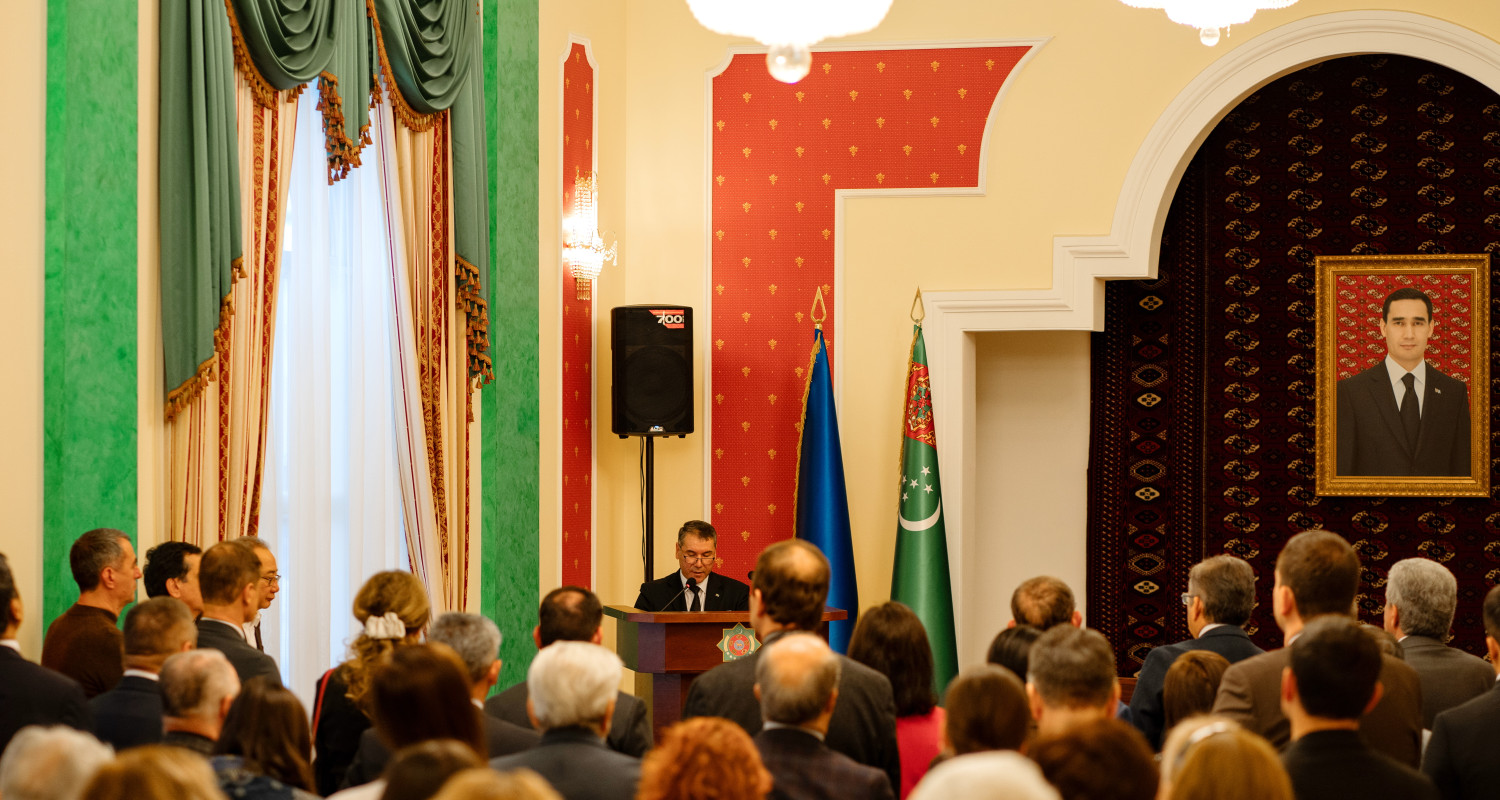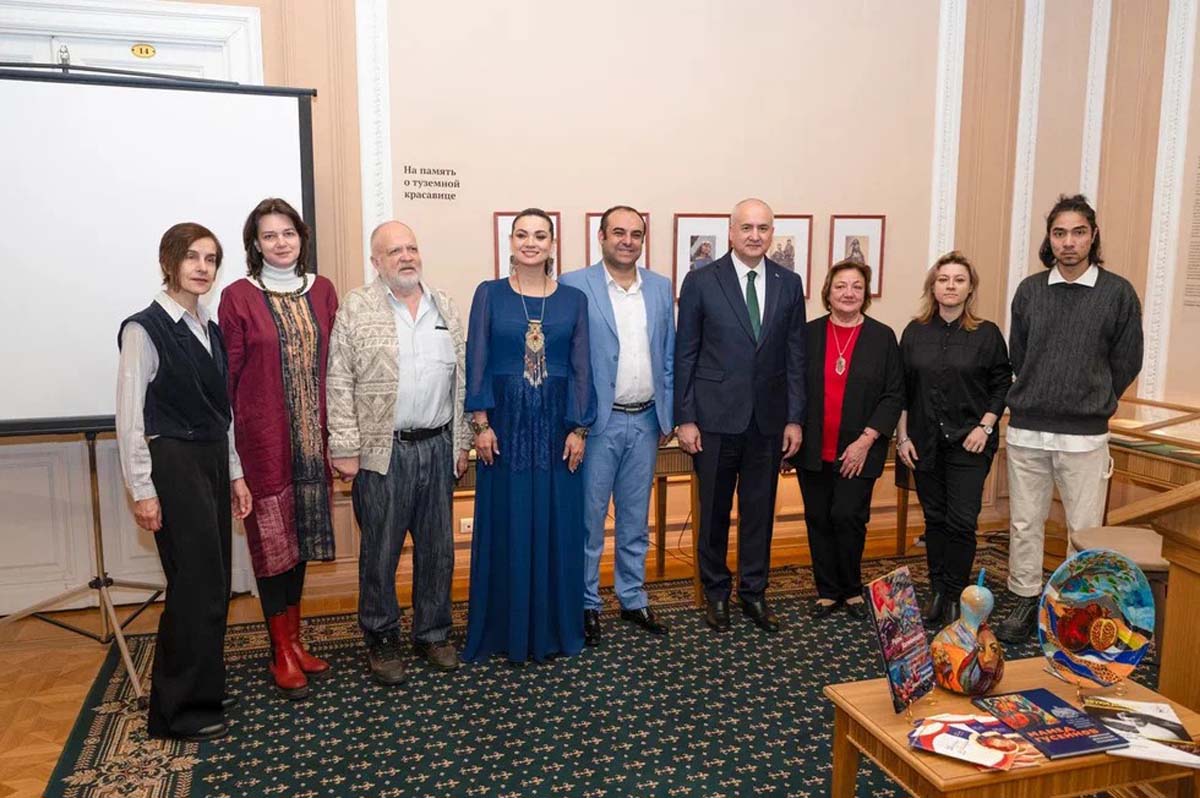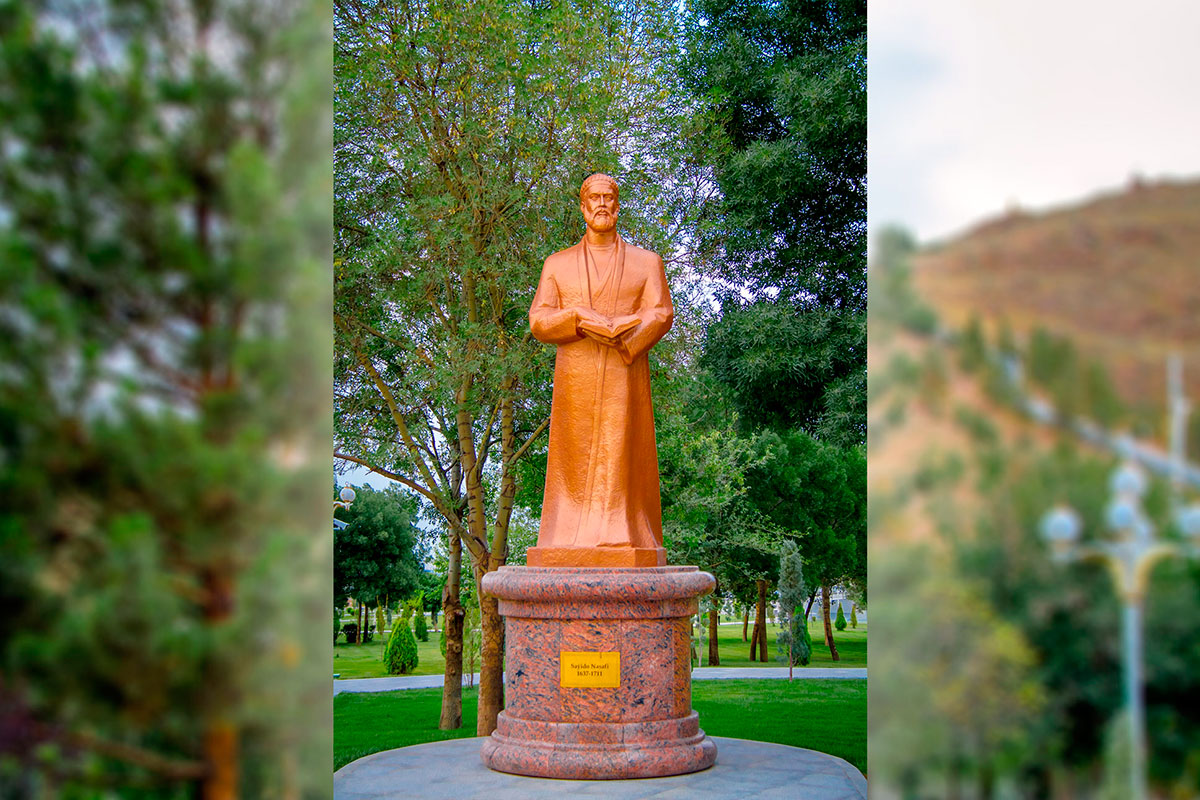Magtymguly Fragi is known as the "father of Turkmen poetry" due to the fact that the creative heritage of this classic influenced the development of many subsequent generations of Turkmen poets as the best example of philosophical lyrics.
Distinguished researchers identify the phenomenon of Magtymguly's poetic talent in his extraordinary passion for perceiving the world and the passionate curiosity of his mind. The beginning of Magtymguly's creative activity dates back to the 18th century. According to legend, the gift of poetry was discovered in his early youth. His father, Dovletmammet Azadi, who was also a renowned poet, scholar and the author of didactic poems, had a significant influence on Magtymguly.
His father taught him literacy, instilled in him a propensity for contemplating the fate of the world and a respect for the poetry of Iran and Turan, adorned with names such as Ferdowsi, Rudaki, Nizami, Saadi, Nasimi, Navoi, Fizuli and Jami. Folk songs and dastans also served as examples and models for the young Magtymguly. Based on these facts, it can be concluded that Magtymguly was a well-educated person for his time.
While continuing his education at the Shirgazi-Khan madrasah in Khiva, he studied the works of Avicenna, Al-Biruni and Al-Khwarizmi, who contributed the concept of logarithms to the world. Later, the poet dedicated a few lines to the madrasa, which roughly translate to: "A golden book was opened to me here. Forgive me, I am leaving, beautiful Shirgazi."
There, in addition to the Quran, the young poet also read Mirza Bedil and other Eastern classics. He mastered the craft of silverwork and jewelry making.
After returning to his homeland, Magtymguly engaged in agriculture, crafts and poetry. He often left home for extended travels in the East. There is information that he also visited Astrakhan in Russia, where he looked at Russian culture with his inherent curiosity.
Magtymguly passed away in the eighties of the 18th century. The burial place of the great poet and his father Dovletmammet Azadi is located in Northern Khorasan, in the village of Aktokay (White Forest).
However, the poetic tradition started by Magtymguly Fragi did not end with the poet's death.
As noted in the book "Bakshies - Harbingers of National Happiness" by the Hero-Arkadag, the literary heritage of the great Fragi, as well as the works of classics of Turkmen literature Seyitnazar Seydi, Gurbandurdy Zelili, Mammetveli Kemine, Mollanepes, Annagylych Myataji and others who continued the traditions of this outstanding thinker, became an inexhaustible source of inspiration for many talented bakshies and sazandas.
Among the masters of the art of words is the name of another Turkmen poet - Misgingylych, whose rare manuscript is now kept in the fund of the Manuscript and Rare Book Department of the Lobachevsky Scientific Library of Kazan Federal University.
In 2023, Riaz Minzaripov, the President of Kazan Federal University, ceremoniously handed copies of Magtymguly's poems, recorded by Misgingylych, to the representatives of the Turkmen delegation.
At that time, Elmira Amerkhanova, the Deputy Director of the Lobachevsky Scientific Library, explained that the manuscript is a collection of materials. The text was completed by 1909. In 1982, the manuscript was handed over to the university from Alma-Ata by the linguist Jamilya Karmysheva.
Such a valuable gift, provided by the Republic of Tatarstan, is especially important in the jubilee year, which is marked by the celebration of the 300th anniversary of the poet's birth and is held in our country under the motto "The Fount of Wisdom of Magtymguly Fragi".
Manuscript sources about Magtymguly's creative work continue to come from different countries around the world. The information obtained helps Turkmen scholars discover new interesting facts about the life and work of the great poet and thinker of the Turkmen people.








